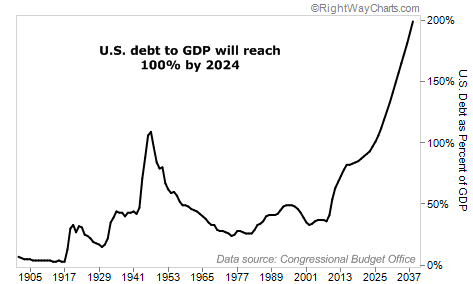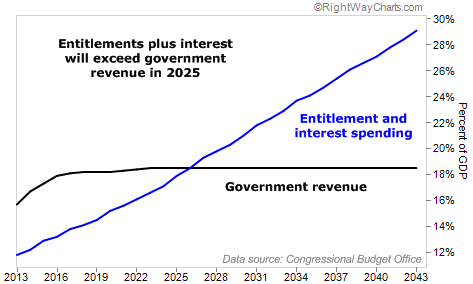

| Visitors Now: | |
| Total Visits: | |
| Total Stories: |
Why U.S. Unemployment Could Triple from Here
Tuesday, December 11, 2012 21:31
% of readers think this story is Fact. Add your two cents.
The unemployment rate in Spain just hit 26%, barely topping Greece.
Not to be outdone, Greece’s largest labor union predicts it will rise to 29% next year.
In Spain, the unemployment rate for those under age 25 is 56%. In Greece, it’s 57%. What happens when you have hundreds of thousands of unemployed youths? They protest… sometimes violently.
Could the U.S. end up like Greece and Spain? Unfortunately, the answer is yes.
How does a country end up with high unemployment? It’s Economics 101…
When you run up big debts that you can’t afford, the borrowing costs in your country go up. Studies show that higher debt loads are a drag on economic growth. Higher borrowing costs and lower economic growth lead to higher unemployment.
You can see it happening around the world:
|
Country
|
Debt-to-GDP
|
Unemployment Rate
|
|
Hong Kong
|
10%
|
3.4%
|
|
Australia
|
30%
|
5.2%
|
|
Switzerland
|
39%
|
3.0%
|
|
United States
|
72%
|
7.7%
|
|
European Union
|
82%
|
11.7%
|
Spain’s debt-to-GDP (gross domestic product) ratio should end 2012 at 85%. By comparison, the official federal debt-to-GDP ratio in the U.S. is currently 72%.
The thing is, it is not the current level of debt that is the concern in the U.S. – it’s the trajectory.

The Congressional Budget Office (CBO) predicts the U.S. federal government debt will reach 100% of GDP by 2025 and 200% of GDP by 2037. (You can see its assumptions here.)
So where did Greece and Spain go wrong? And can we avoid making those mistakes here?
Simply, the Greek and the Spanish governments made unsustainable promises to their people. And they rang up huge debts to pay for those promises. The weight of these debts forced economic growth to fall, which led to higher unemployment.
Unfortunately, in the U.S., we are doing exactly the same thing…
Our government has promised to pay for “entitlements” – programs like Social Security and Medicare/Medicaid. But they are unsustainable in their current form. In order for these benefits to exist at all for future generations, the programs need to be reformed.
To show you what I mean, consider this chart:

It shows that spending on just these entitlements (plus the interest on the national debt) will eat up ALL the government’s revenue by 2025. Once again, it is the trajectory that is the problem.
The spending on entitlements (and the interest on our national debt to pay for these entitlements) will continue to soar. (These estimates also come from the CBO.)
Politicians are deathly afraid to reform entitlements. They know if they vote in favor of entitlement reform – even if it is to ensure they continue for future generations – they will lose their re-election bid.
But entitlement reform has to happen – or the U.S. will end up like Greece and Spain, with low growth and high unemployment.
Politicians are talking around the issue these days. They’re talking about increasing revenues through taxes… and cutting spending on different programs. But all that talk is a waste of breath.
Let your Congressmen know you don’t want to end up like Greece… that you don’t want a broke government and riots in the streets because the government can’t fulfill its promises.
Let your Congressmen know that you are behind them… that they have your vote if they do the hard-but-right thing with entitlements.
We can’t avoid the issue any longer.
The easiest way to contact your Congressmen is to type your zip code into this website. It takes you to the contact forms for all your Congressmen.
Do it… Let’s not end up like Spain and Greece…
Regards,
Steve
2012-12-11 21:23:12
Source: http://www.dailywealth.com/2278/entitlements-spending-unemployment
Source:





Not sure where you get your numbers from, but by my reckoning, we are in worse shape than you suggest in this article. We are ALREADY over 100% in the debt to gdp ratio. The GDP is less than $16 Trillion, and the debt is actually at 16.3 trillion. And to properly discuss the real debt, you need to take into account the unfunded liabilities which are a staggering $68 trillion (or so).